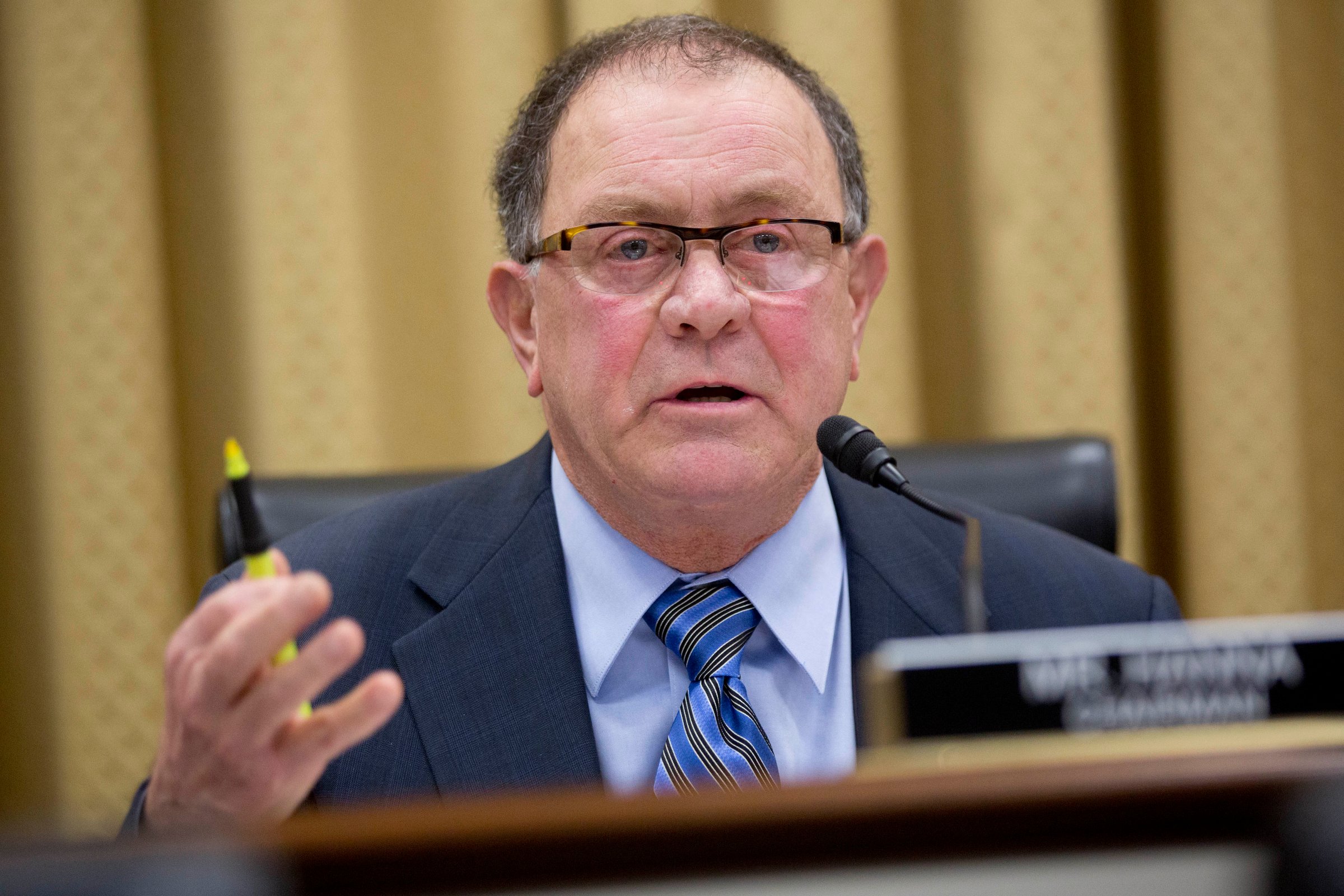
The decisive issue in the contested NY-22 primary that concluded Tuesday was the one hardly anyone talked about: gay marriage.
In the weeks leading up to the vote, the race between challenger Claudia Tenney and incumbent Rep. Richard Hanna had taken on the nationwide Tea Party vs. establishment narrative, with Tenney trying to claim she was following in the footsteps of David Brat, the professor who slew House Majority Leader Eric Cantor in this month’s stunner. But the race had been won months before, thanks to Hanna’s support for gay marriage.
American Unity PAC, a super PAC devoted to defending Republican candidates who support gay marriage founded by hedge fund executive Paul Singer, had long ago decided on backing the two-term incumbent, a member of the LGBT equality caucus and a backer of the Employment Non-Discrimination Act. Recognizing that Hanna was vulnerable, the group spent over $500,000 on paid television and radio ads, more than everyone else in the race combined, part of a more than $700,000 overall investment. But not a single ad mentioned gay marriage.
Defending one of four Republican lawmakers supportive of same marriage was the toughest test yet for the group, which was founded in 2012, but also an example of how super PACs work to influence races. A strategist for American Unity PAC discussed the group’s long-term plans to defeat Tenney, centering on driving up her negatives by casting her as soft on jobs and tax issues, ignoring her more conservative stances on social issues including gay marriage and abortion because it wouldn’t have helped them in the district.
“We needed to understand her vulnerabilities and also Richard’s vulnerabilities,” Jeff Cook-McCormac, the group’s senior advisor told TIME. “We found that her votes on tax policy weren’t in line with a majority of Republicans in Albany,” he continued. “She had refused to support the budget, which had included tax relief for the middle class.”
That formed the first attack, beginning on television and radio, backed by robocalls and five separate direct mail pieces.
The group then moved to attack Tenney for voting against a $1.5 billion Nano Tech project that was projected to bring in 1,500 jobs. A television ad was backed by radio, robocalls, and direct mail.
The suggestion that Tenney wasn’t conservative enough for the district struck Tenney supporters as rich. She was endorsed by the Conservative Party, and objected to the legislation on spending grounds. But for American Unity PAC, that was besides the point. They had found her weakness. “We knew we had to drive up her negatives and give people a reason why she wasn’t a good candidate before she could catch on,” Cook-McCormac said.
Cantor’s defeat was exactly the type of catalyzing event the group feared. Tenney now had a chance to nationalize the race, bringing the type of attention they knew would tighten the race.“The narrative that every candidate was trying to build after Brat was that they were the next thing, Cook-McCormac said. “She was saying I’m catching up. We knew we needed to undercut her narrative. That not only is she not catching up, she’s falling farther behind.” The group commissioned another poll showing Tenney falling further behind, and released it to a local reporter.
The super PAC is convinced that it kept national attention off the race for a crucial few days, and that by the time Tea Party groups started investing, it was already too late.
When Tenney became a cause célèbre for the conservative grassroots two weeks ago and Rick Santorum, Sean Hannity and Tea Party groups rushed to back her after the Brat race, American Unity PAC was ready. It had recruited Rudy Giuliani, who polls showed was popular in the district, to endorse Hanna in an ad, ending their spending campaign on a positive note.
Even with all of that, the race was still closer than they would have liked. An internal poll the weekend before the election showed Hanna up 8 points. By election day it was down to six.
“If we hadn’t done the initial investment earlier on, it would have been a different outcome,” Cook-McCormac said. The final margin was just 52.8 percent to 47.2 percent—just 1,632 votes.
Now the pro-gay marriage Republican group is moving on to the next races. It is already preparing to back incumbents like Sen. Susan Collins and Rep. Ileanna Ros Lehtinen, as well as candidates in favor of gay marriage such as Bob Dold in Illinois, Richard Tissei in Massachusetts, and Carl DeMaio in California. “The ability for anti-gay politicians to use this as a wedge issue has evaporated over the last couple of years,” Cook-McCormac said. “What candidates now know is that there’s a network of donors who have their back and are willing to go to bat for them.
More Must-Reads From TIME
- The 100 Most Influential People of 2024
- The Revolution of Yulia Navalnaya
- 6 Compliments That Land Every Time
- Stop Looking for Your Forever Home
- If You're Dating Right Now , You're Brave: Column
- The AI That Could Heal a Divided Internet
- Fallout Is a Brilliant Model for the Future of Video Game Adaptations
- Want Weekly Recs on What to Watch, Read, and More? Sign Up for Worth Your Time
Contact us at letters@time.com